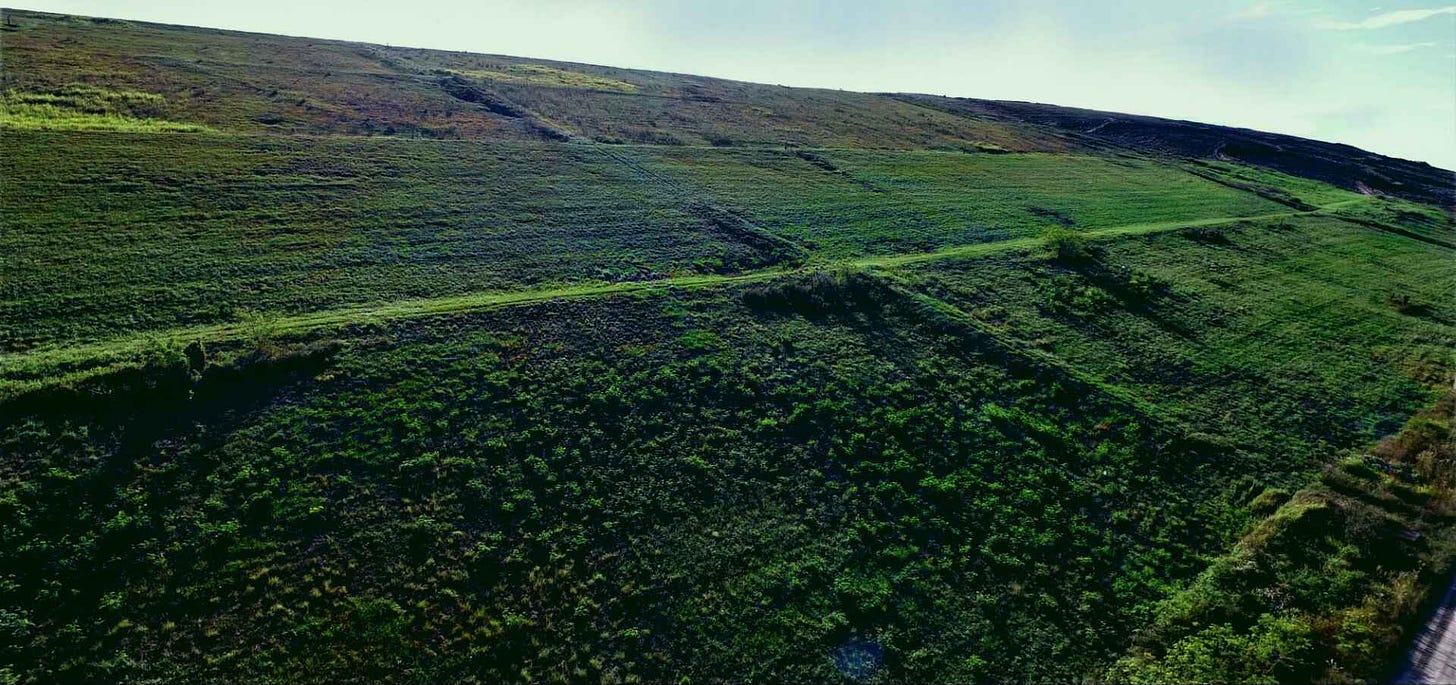Landfill developer pledges job creation, seven-digit revenue payments to local governments
Knox Horner, of Cleveland, Tenn., says he's committed to being a 'positive force' in the local community.

ONEIDA | The developer planning a new landfill in north Oneida on Thursday said he is pledging to create at least 25 jobs and paying more than $2 million annually in host fees.
Knox Horner, the Cleveland, Tenn. landfill developer who is in the process of buying several hundred acres of land in the Bear Creek area between Oneida and Winfield, said Monday’s meeting of Scott County Commission caught him “completely off guard and unprepared” and said he hopes local residents will “withhold any judgment until they have all the information” about his planned project.
“We look forward to sharing with the community the positive impact we can and will have,” he said. “We are committed to being a positive force.”
Horner said that the planned landfill project will:
• Create “a minimum of 25 good paying jobs for CDL drivers, heavy equipment operators and office staff.”
• Develop a “technically advanced recycling center prior to disposal of non-recyclable materials.”
• Create an “interactive learning center for educating children (and) promoting the benefits of recycling.”
• Create city and county school recycling competitions.
• Pay more than $1 million per year in host fees to Scott County, and more than $1 million per year in host fees to the Town of Oneida.
• Establish an “environmental science” scholarship for students.
Horner also said the his group will be “executing stream restoration and remediation caused by the coal mining” on the properties they’re purchasing, adding that they will invest an estimated $2 million to restore the streams “to pristine conditions.”
Scott County and Oneida each currently receive 85 cents per ton in host fees from Waste Connections, which owns Volunteer Regional Landfill. According to numbers obtained by Scott County Mayor Jerried Jeffers, the landfill accepted 305,000 tons of trash over a nine-month period from July 2024 to March 2025. At Monday’s commission meeting, Horner said he was committing to a host fee of $1.20 per ton.
Under state statute, host fees can only be spent for solid waste activities. Horner said Thursday that he would commit to helping local officials pursue a change at the state level that would allow those fees to go into the general fund.
“Think about it,” he said. “Two million dollars a year could go a long way in improving the condition and safety of the roads in the city and county. The elected officials would have to pursue this (but) we are more than happy to help.”
There has been an outcry of opposition to the landfill. At Monday’s commission meeting, an overflow crowd showed up at the Scott County Office Building to protest, filling the conference room to capacity and spilling over into the hallway. The voices of opposition have continued to be heard on social media since that meeting.
However, it remains unclear what can be done to prevent the landfill from becoming reality. Landfills are licensed by the state, not local governments, through the Dept. of Environment & Conservation. The only means of control over privately-owned landfills for local governments is the so-called Jackson Law, which was adopted by the state legislature in 1989. It allows both county and city governments to reject landfill proposals.
However, the Jackson Law appears to be moot in this situation, due to a 1980s decision by County Commission and a subsequent court ruling.
Commissioners in 1986 approved a landfill proposal by the original landowner at Bear Creek for 2,000 acres of property that includes the existing Volunteer Regional Landfill and the properties being purchased by Horner. Three years later, in 1989, the state passed the Jackson Law statute and Scott County opted in, after which County Commission attempted to renege on that 1986 agreement. The landowner, the late Johnny King, filed a lawsuit against both the county and the Town of Winfield, and in 1992 the 8th Judicial District Chancery Court ruled in his favor, saying that the Jackson Law could not be used to retroactively revoke the landfill proposal. The local opt-in to the Jackson Law subsequently expired in 2010.
It is likely that County Commission will pursue a renewal of the Jackson Law opt-in beginning with its work session on June 2, and Oneida Mayor Lori Phillips-Jones has said that she’s also been having conversations about the Jackson Law. However, county attorney John Beaty advised commissioners at Monday’s meeting that renewing the Jackson Law opt-in would not allow the current landfill proposal to be stopped; an attempt to do so, he said, would likely land the county in violation of the 1992 court order.
The only other possibility could be zoning restrictions by the Town of Oneida. Part of the property Horner is considering for purchase — though not all — falls within the town’s municipal limits.
It is not clear that zoning restrictions could be used by the town to prevent a landfill. Mayor Phillips-Jones told the Independent Herald on Thursday that she is doing her due diligence by reaching out to the University of Tennessee’s Municipal Technical Advisory Service (MTAS) and the TN Dept. of Environment & Conservation, but said she has not received enough information yet to formulate an opinion.
Scott County does not have zoning restrictions. Implementing zoning restrictions would require passage of what is known as the County Powers Act, which gives county governments some of the powers enjoyed by municipal governments, and could only be done by a two-thirds vote of County Commission.


